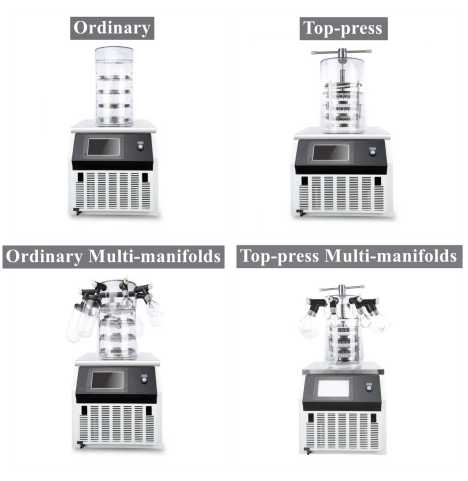The process of freeze drying, which is also known as lyophilization, is an effective method that is frequently used in laboratory settings for the purpose of preserving samples and preparing them. The scientific community relies heavily on freeze dryers because they give researchers the ability to preserve and store sensitive materials without compromising the materials' integrity while also extending the shelf life of those materials. In this piece, we will investigate the numerous ways in which freeze dryers can be utilized in various types of laboratory settings, highlighting the significance of these devices in a variety of scientific fields.
1. The Preservation of Biological Samples:
Freeze dryers find widespread application in the fields of biology and life sciences for the purpose of the preservation of biological samples. Freeze drying, which involves the removal of water from the samples, is an effective method for preventing the biological degradation of samples and maintaining the viability of cells, tissues, and microorganisms. This method is especially helpful for the long-term storage, transportation, and subsequent analysis of biological materials like DNA, proteins, enzymes, vaccines, and cell cultures, among other things.
2. Pharmaceutical and Drug Development:
Freeze dryers play an important role in the pharmaceutical industry, particularly in the process of drug formulation and production. Freeze-drying pharmaceutical compounds has been shown to significantly increase their stability and shelf life, likely due to the absence of water, which lowers the risk of chemical reactions leading to degradation of the compound. The production of highly concentrated drug formulations is also made possible by freeze drying, which contributes to improved patient compliance and facilitates more accurate dosing. Additionally, freeze-dried vaccines and biologics have improved stability, and they can be stored at higher temperatures without losing their efficacy. This makes distribution and administration much simpler.
3. The Food and Beverage Industry
Freeze dryers are beneficial to the food industry because they allow for the preservation of a wide variety of food products. Foods that have been freeze-dried keep their original flavor, texture, and nutritional value while also having a shelf life that is significantly extended. Because the process of laboratory freezing removes moisture without significantly altering the structure or composition of the food, it has become a popular method for preserving a wide variety of foods, including fruits, vegetables, spices, herbs, coffee, and dairy products. Ingredients that have been freeze-dried find widespread application in the culinary arts as well as in the manufacturing of instant foods and beverages.
4. Archaeology and Forensics:
Freeze drying finds applications in archaeology and forensics for the preservation and analysis of fragile and sensitive artifacts and evidence in both of these fields. Researchers are able to stabilize and preserve artifacts, such as fragile documents, ancient textiles, manuscripts, and biological samples from crime scenes, by freeze-drying the specimens. This helps to prevent the materials from deteriorating any further. Samples that have been freeze-dried make it possible to conduct in-depth forensic investigations such as DNA extraction and detailed analysis without compromising the samples' integrity.
5. Freeze dryers are an essential piece of equipment for use in laboratories dedicated to material science and research.
This method is utilized frequently in the process of preparing and analyzing materials that have delicate structures or properties that could be harmed if dried using more conventional techniques. The process of freeze-drying makes it possible to preserve and characterize advanced materials such as polymers, nanomaterials, and ceramics, amongst other types. The original state of the material is maintained, which makes it easier to study phase transitions, morphology, and the surface chemistry of the material.
In a laboratory setting, freeze dryers are essential pieces of equipment because they provide invaluable capabilities for the preservation, preparation, and analysis of samples that can be applied to a diverse array of scientific fields. Freeze dryers provide scientists and researchers with a versatile method for extending the shelf life of sensitive materials, maintaining their properties, and making it easier to conduct further analysis. This can range from the storage of biological samples and the development of pharmaceuticals to the preservation of food and research into material science. The utilization of freeze dryers in research settings continues to facilitate the advancement of research and contributes to the development of science in a wide variety of areas.









